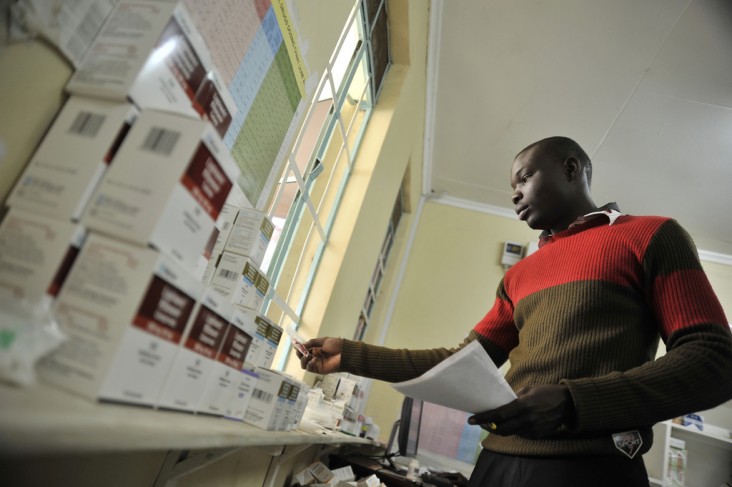
“I still don’t fully accept my status,” says Vivian Achieng, 27, as she waits to fulfill her antiretroviral prescription at Kenya's HIV Patient Support Center in Kisumu. She found out she was HIV-positive four years ago, in 2009.
Many Kenyans seek treatment far away from their homes to escape the stigma that can be associated with being HIV-positive, and when they arrive in Kisumu, they are not disappointed. The center dispenses antiretroviral drugs on Mondays, Tuesdays and Wednesdays.
“They come because we never run out of drugs," says Caroline Audi, head clinician at the center. She’s referring to the full stock of antiretroviral drugs, which is not commonplace in Kenyan pharmacies. An electronic pharmacy management software called the Antiretroviral Therapy Dispensing Tool has made effectively managing HIV medications much easier. As of October 2012, 320 health facilites across Kenya were using the tool provided by USAID.
The dispensing tool allows pharmacy staff to keep track of patient information, records the antiretroviral drugs prescribed and dispensed, and monitors patient adherence. The daily report, run by social service workers, immediately identifies patients who miss their appointments or may be in danger of running out of medications. If the patient can`t be reached on the phone, a community health worker visits their home.
Before adopting the software, center workers logged dispensing information by hand into a thick book, the daily activity register. “The registers simply didn’t have the capability to detect important issues in a patient’s treatment,” says Kisumu East District Pharmacist Emmah Obegi.
Seeking treatment for HIV is not just a decision, it’s a commitment—one many people are reluctant to make. There are over 600,000 Kenyans on antiretroviral treatment—approximately 83 percent of these patients are treated at sites using the dispensing tool.
Achieng isn’t sure she will stay on antiretroviral therapy if the side effects are noticeable. Her immunity is too low to continue on other treatments, and her health-care providers have assured her they will work with her to minimize side effects.
“When you’re sick, you belong in another world, and it’s lonely,” she says. “No one understands how it feels to be HIV-positive, and there is no one at home to remind me to take my medicine.”
Achieng’s story rings true for many, but small improvements in health systems, like the Antiretroviral Therapy Dispensing Tool, mean that she and other Kenyans living with HIV don’t have to fight this disease alone.
Since 2005, working through the President’s Emergency Plan for AIDS Relief, USAID has been working side-by-side with the Government of Kenya to provide direct support for prevention, treatment and care services. In addition to HIV/AIDS programs in every county, USAID programs improve the fundamental elements of the health system, making critical treatment services more sustainable, efficient and cost-effective.







Comment
Make a general inquiry or suggest an improvement.